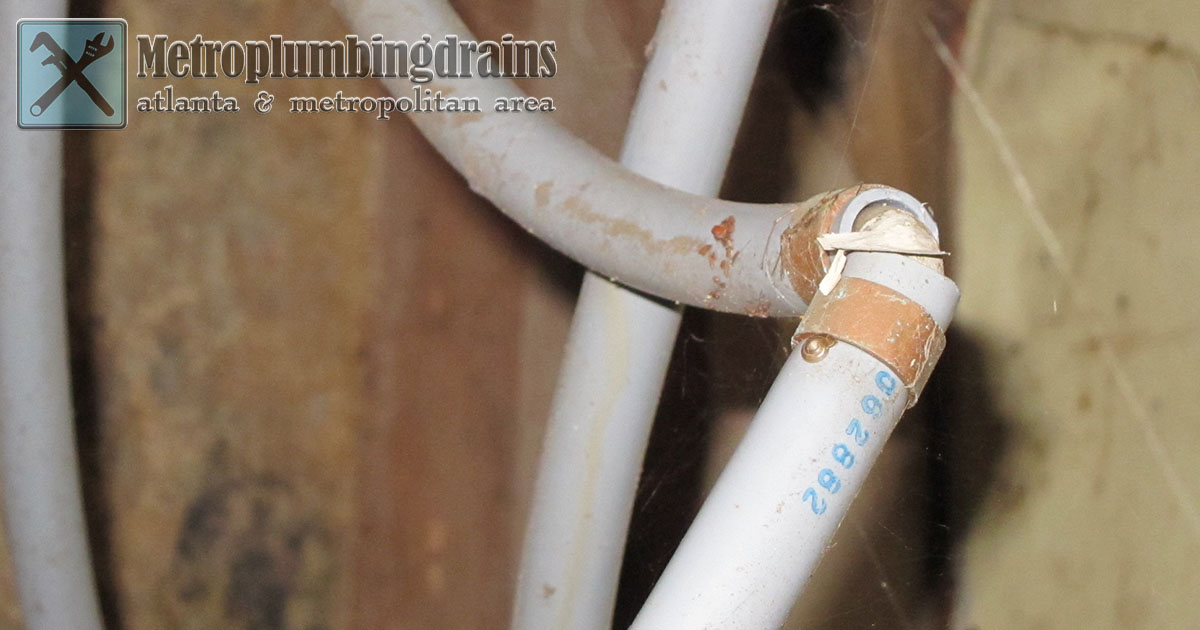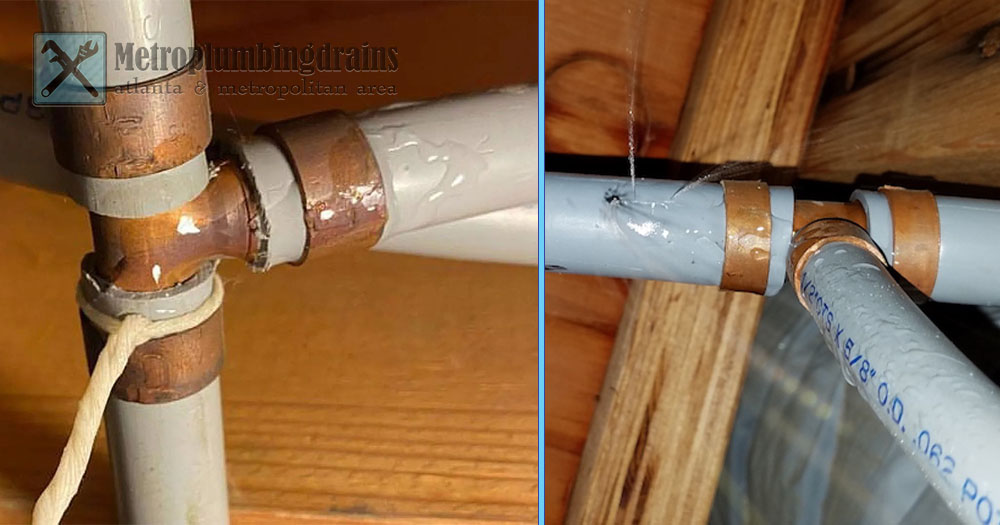Should you be concerned if you still have polybutylene pipes from this period?
Polybutylene pipes were manufactured and installed in about 15 American states in the early 1970s, all the way up to the mid-1990s. But instead of a great triumph, they turned out to be the biggest and most resounding slap in the face to the three megacorporations that produced it. Dirty as a sewer, the truth about polybutylene pipes was covered up for many years. This is a brief chronology of the scandal…
When cheap comes out very expensive
Manufactured cheaply and quickly from plastic resin, polybutylene was the answer to the real estate construction boom during this period in California, Nevada, New Mexico, Texas, Arkansas, Florida, Georgia, the two Carolinas, and more. This vast strip of land locked between two oceans is also known as the ” Solar Belt.” The construction boom is also leading to a huge demand for cheap building, and plumbing materials. Because, after all, every house requires a water supply, right? At first reading, polybutylene pipes seem like an ingenious solution.
The disaster
But they’re actually a huge disaster! Plumbers in the aforementioned states are soon finding out the harsh reality. Scales and flaking occur inside polybutylene pipes as a result of chlorine and other chemical components circulating in the water of public pipe lines. micro-cracks emerge as a result of this. Bursting follows logically. A burst pipe is never a nice thing. And tens of thousands of bursting pipes are a scandal with far-reaching consequences.
The huge scandal with Qest, Shell Oil and Vanguard
The manufacturers of the polybutylene pipes are 3 big companies: Qest, Shell Oil, and Vanguard. The first is a pipe and fittings manufacturer, the second is an oil refining company, and the third is a financial institution. The responsibilities are shared: Vanguard provides the financing for the project, Shell the cheap plastic, and the Qest manufactures the pipes. In the 1980s, they ran massive advertising campaigns to establish their product on the market. But instead of the promised ultra-strong “pipes of the future,” their customers got something different…
Why were polybutylene pipes phased out… only in the mid-1990s?
Keep in mind that polybutylene pipes seemed like a perfect answer for construction corporations at the time. Contractors were buying them up even before they came off the assembly lines since they were cheap and simple to install.
Polybutylene pipes were installed in nearly 10 million new residences in the Golden Belt states, including Georgia, according to preliminary estimates. But, eventually, the truth began to “emerge” from dirty sewers and busted pipes…
The Scandal
As more and more homeowners begin to complain to the media, the disaster called polybutylene plumbing pipes can no longer remain hidden. The manufacturing companies are being held legally liable. The two major lawsuits brought families affected by the defective product seven hundred and fifty million dollars in damages. In other words, the three companies in charge of the project paid about three-quarters of a billion dollars in damages. Any household who can prove that a polybutylene pipe burst in their home or on their property is compensated for the damages.
Polybutylene pipes are no longer in use, but they could still exist on your property
Although polybutylene is no longer used, polybutylene pipes may still remain on your property. Even if you’ve hit the jackpot and your pipes are among the last ones installed in the mid-1990s, their life expectancy is only 15-20 years. And that’s in the most optimistic scenario. In other words, your pipes have long exceeded any utilization restriction. It is necessary to replace them with modern PEX pipes. Seek the services of an experienced plumber to detect and confirm the presence of polybutylene pipes in your house.
The repiping service
He will give you a correct professional opinion. Thеn he will provide you with an offer and start work on replacing the pipes. The whole house repiping will take one to three (max) days . However, it is possible that walls will need to be cut or shattered in order to get to the old pipes. It may take a few days more to rebuild it after the pipes have been replaced.
How do you pick a plumber to replace your old polybutylene pipes?
- Look for an experienced plumber with a good team.
- To fall under the heading: a plumber near you.
- Will provide you with a fair and affordable offer (including a discount, free expertise, etc., for example).
Call NOW for a 15% discount on any of Metroplumbingdrains.com services!


